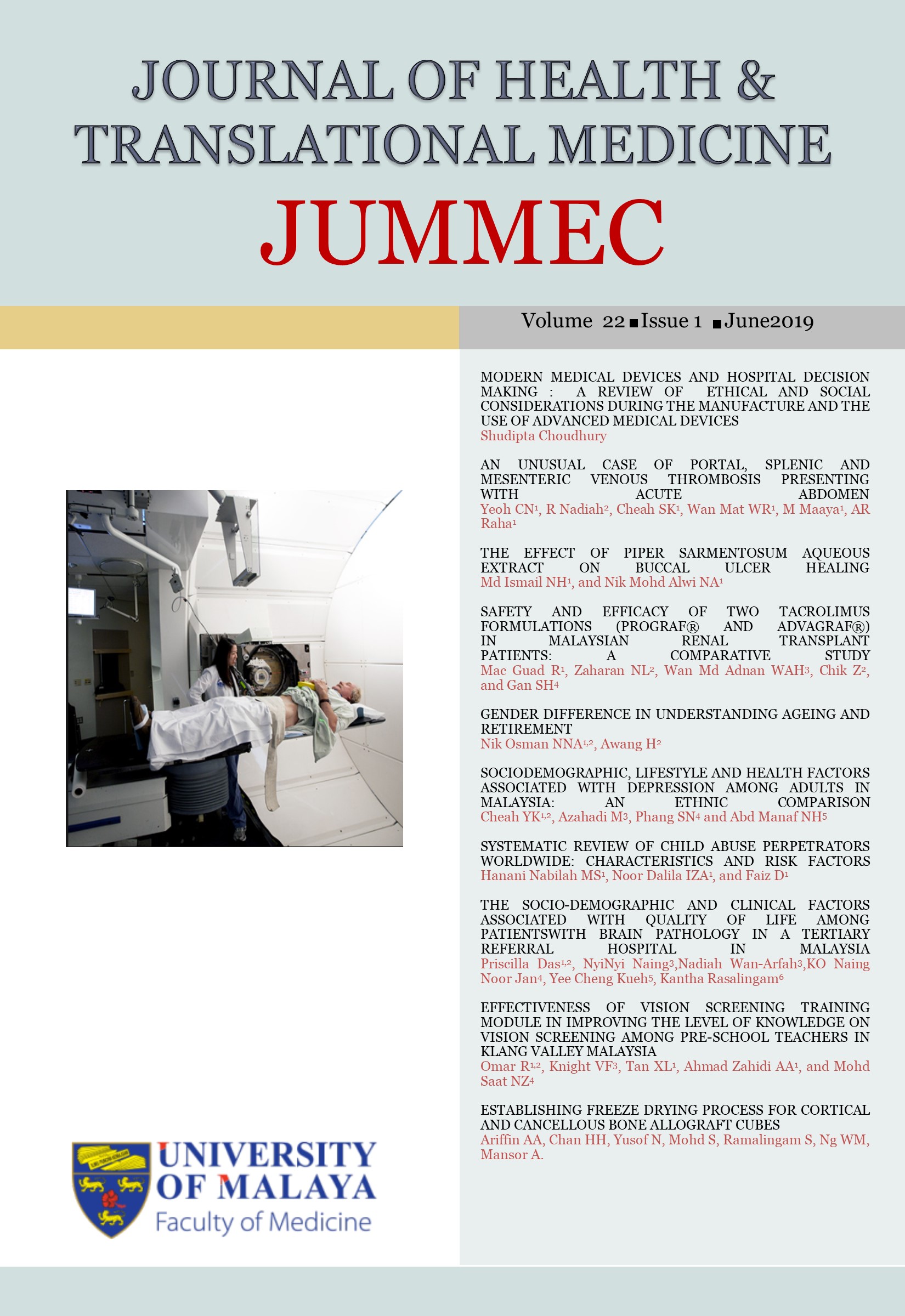SOCIODEMOGRAPHIC, LIFESTYLE AND HEALTH FACTORS ASSOCIATED WITH DEPRESSION AMONG ADULTS IN MALAYSIA: AN ETHNIC COMPARISON
Received 2019-03-18; Accepted 2019-05-18; Published 2019-06-29
DOI:
https://doi.org/10.22452/jummec.vol22no1.6Keywords:
depression, ethnicity, gender, lifestyle, mental healthAbstract
Background: Depression is a serious mental health illness worldwide. The purpose of the study was to investigate the relationships between depression and its risk factors of sociodemography, lifestyle, and health among the adults of the different ethnic groups in Malaysia. Method: A nationwide database with 10141 observations was used. Multivariable logistic regression analyses stratified by ethnicity were estimated. Results: Ethnicity and gender, age, education, marital status and self-rated health were correlated to the likelihood of having depression. Malay females and smokers (AOR: 2.083) were more likely to suffer from depression than Malay males (AOR: 0.305) and non-smokers. Higher-income Chinese displayed higher odds of having depression than lower-income Chinese (AOR: 1.009). Indians and others with secondary-level education displayed a lower likelihood of developing depression compared to those with primary-level education (AOR: 0.587). Conclusion: This study could contribute significantly to the formulation and development of an effective policy directed towards reducing the prevalence of depression in the vulnerable. These were the adults, in the younger age group, with lower education, with self-rated poor health, being female, unmarried, Malay and Chinese, and Indians and others. A nationwide policy targeted towards the Malay females to reduce their depression, with attention to the Chinese with a high income, and to the Indians and others with poor educational background to improve their knowledge of mental health, would be worthy of consideration.
Keywords: depression, ethnicity, gender, lifestyle, mental health
Downloads
Downloads
Published
Issue
Section
License
All authors agree that the article, if editorially accepted for publication, shall be licensed under the Creative Commons Attribution License 4.0 to allow others to freely access, copy and use research provided the author is correctly attributed, unless otherwise stated. All articles are available online without charge or other barriers to access. However, anyone wishing to reproduce large quantities of an article (250+) should inform the publisher. Any opinion expressed in the articles are those of the authors and do not reflect that of the University of Malaya, 50603 Kuala Lumpur, Malaysia.


